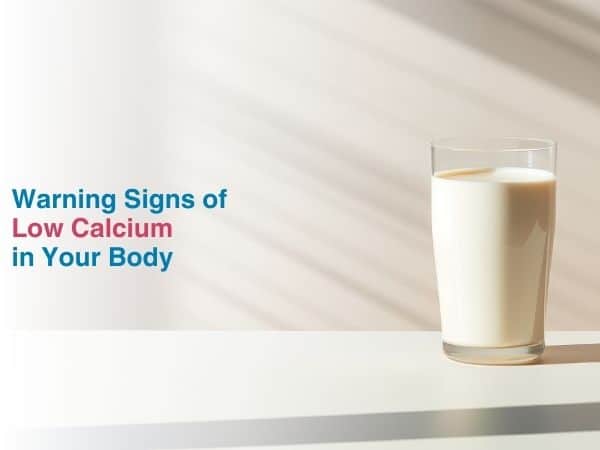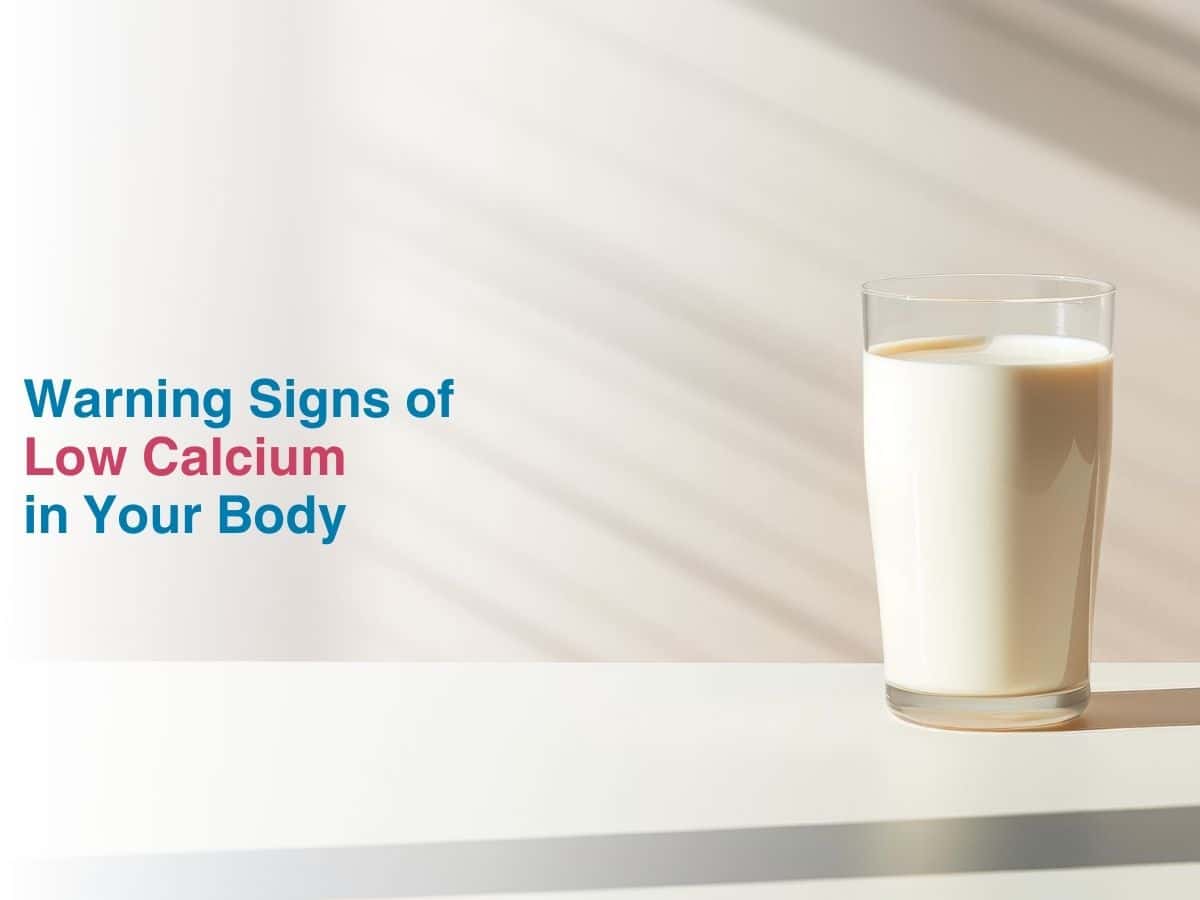
Warning Signs of Low Calcium in your Body

Calcium is a mineral that finds use all over the body, so a deficiency can cause systemic issues in the long run. We derive calcium from food mostly, but underlying medical conditions like kidney disease or bariatric surgery can cause a deficiency. Since it is an electrolyte, diuretic based medications can also reduce concentrations in the body. It is mostly asymptomatic for a very long time and when they do show up, the damage is already done. In India, large numbers of infants, women and children suffer from hypocalcemia. It is especially prevalent in pregnant women, exclusively breastfed children and in older individuals. So, it makes sense for us all to learn about the signs and symptoms that do show up, however subtle they may be.
Early Signs and Symptoms of Calcium Deficiency in Adults-
The widespread need and subsequent utilisation of calcium means a deficiency can do a number on multiple bodily processes. Some of the most common ones include-
- Muscular issues- like cramping, spasms, pain, numbness and tingling, mostly when there is some kind of movement involved. Extreme deficiency can cause heart rate issues, seizures or even death.
- Since calcium ions are necessary for all cellular activity, a deficiency can leave you feeling very tired and sluggish. You won’t be able to sleep normally either. You may feel dizzy and forget stuff or get confused very often.
- The nails and the skin- the texture of skin may be very dry, flaky and itchy while nails may get very brittle and break off easily.
- Calcium is fundamental to maintaining bone health and shortage can mean osteoporosis and osteopenia.
- Bones may get structurally deformed and can fracture easily.
- In women, PMS symptoms may get really bad due to low calcium and Vitamin D levels. Supplementation may help women.
- Your teeth are not spared either- they may decay sooner, the roots feel weak and your gums will be inflamed.
- Adults can suffer from a condition called osteomalacia while children may get rickets.
Understanding the Neurological Effects of Low Calcium Levels-
Brain function and neuropathy are caused due to hypocalcemia. Some of the symptoms to watch out for are-
- Memory loss in extreme cases
- You may feel really confused
- Calcium levels need to be maintained tightly in the brain for proper function, but studies have shown that there may be neurological issues on a large scale.
- You could have seizures or convulsions
- Tingling and numbness in the extremities and mouth. This is called paresthesia.
The Role of Calcium in Cardiovascular Health and Related Symptoms-
The heart needs highly regulated amounts of calcium to function normally and low levels can mean arrhythmias or changes in heart rate,myocardial ischemia and even congestive heart failure. Low calcium levels may also be due to medical conditions like hypoparathyroidism, celiac disease, kidney and liver disease, certain drugs and chronic Vitamin D deficiency, respectively.
Conclusion
The connection between hypocalcemia and chronic fatigue is very well documented. If the shortage is due to a poor diet, then it can take years to reach a saturation point. The signs and symptoms are much more pronounced when it is due to related medical conditions. The only sure way to ensure that you are diagnosed on time is to get tested regularly- every year. This way, you and your doctor can see how and why the major dip happened and then you can begin treatment promptly. Hypocalcemia is normally diagnosed with bone density tests, blood and urine tests. You will be asked to make major dietary and lifestyle changes, for you to get better. But, the good news is it is a highly treatable condition.






